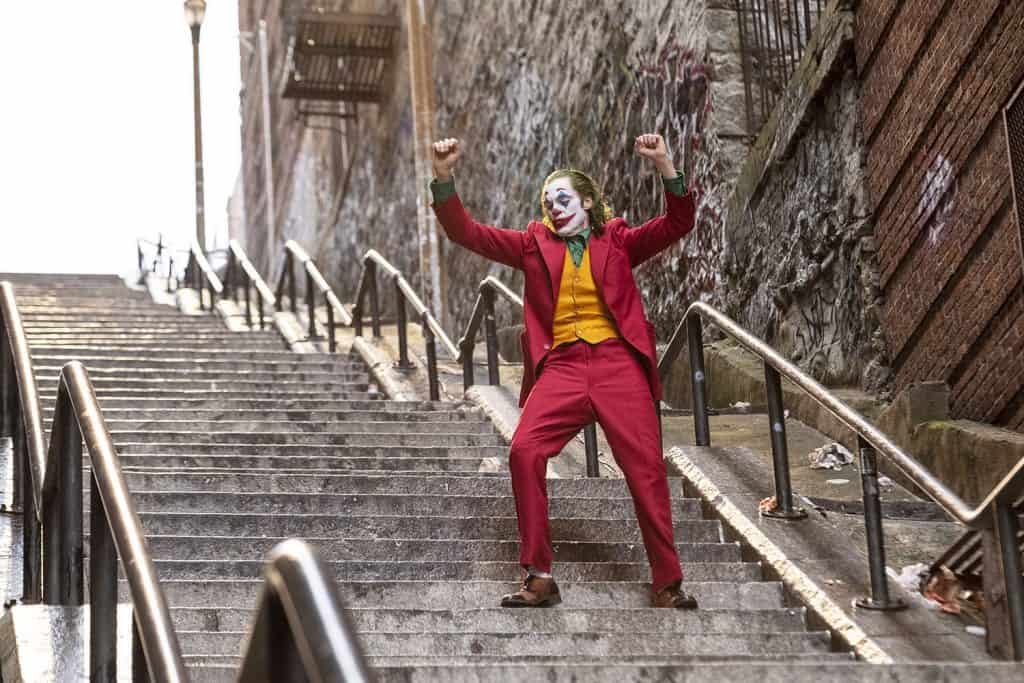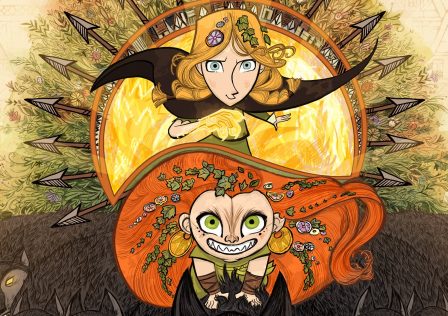LM Foong: Ah, the Joker. What do we say about him? What hasn’t been said about him? One of the most iconic villains in all of pop culture history, he is the Clown Prince of Crime, the agent of chaos, the ace of knaves, the Puddin’ of Harley Quinn, the parallel of Batman, and that weirdo in Suicide Squad. But director Todd Philips of the Hangover fame seems to think there is more to tell, and Oscar-nominee Joaquin Phoenix is just the man for the job.
No doubt the movie has palpable hype. Philips’ Joker hit record box office earnings for October films. It also won Best Film at the Venice Film Festival.
At DeconRecon, I believe the team was pretty much sold when we watched the Joker trailer. But having seen the movie, we are… well, not so sure anymore. What we are sure about is that there are plenty to unpack in Joker. I’m joined by my fellow DeconReconians, J Cheong and JY Tan, and we’ll go into why the film is both masterful and a major disappointment for us.
Before we start, meet Arthur Fleck.

Yep, that’s Joaquin Phoenix. He plays Fleck, who works as a clown-for-hire. Behind the pasty makeup and ruby red smile hides a man grappling with mental disorders, including pathological laughter — which is based on a real neurological condition that sees sufferers laughing uncontrollably. In his dingy apartment, Fleck takes care of his ailing mother (Frances Conroy) and watches his favourite late-night show hosted by Murray Franklin (Robert De Niro). Outside, Gotham is a dump. Jobs are scarce, people are divided, and the economy is crumbling.
Fleck has a dream. He idolises Franklin and wants to be a comedian like him. But Fleck is dealt a bad hand in life. He lost his job, then his source of mental disorder medication due to state budget cuts, then his dignity as Franklin made fun of his stand-up comedy attempt on live television. Seemingly stuck on the fast lane to brokenness, Fleck begins to take on a persona that everyone in Gotham (and perhaps our world) will soon recognise.
So, what do you two think of Joker?
ALL WE HAVE ARE SPOILERS AHEAD
J Cheong: Two words kept coming to my mind throughout the movie: dark and heavy. I understand that the DCEU has opted for the gritty and mature route with their other superhero movies but Joker cranks it up to the Nth degree.
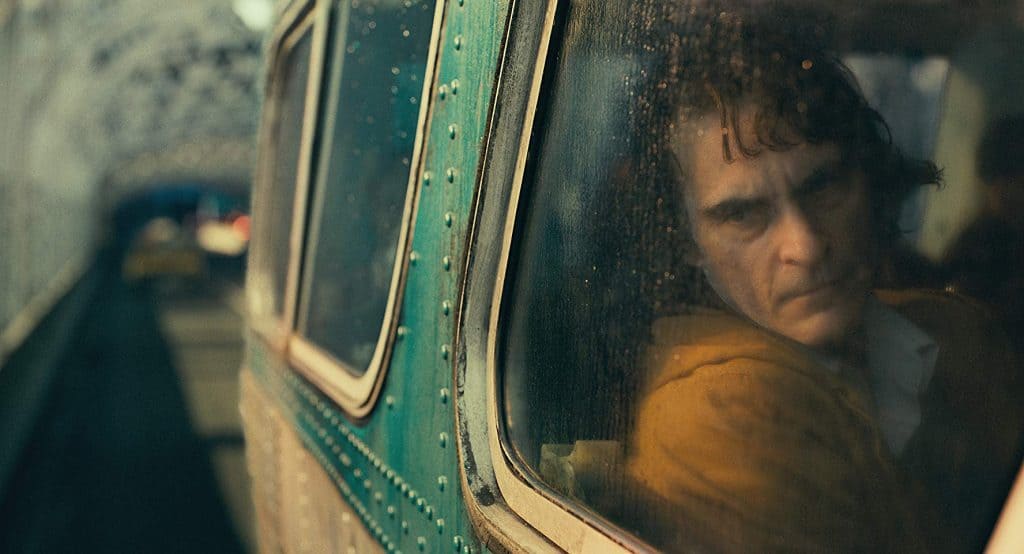
I actually really liked how the movie explores very real themes, like the way society treats those with mental disorders and also those who are less fortunate than them. Unlike in previous iterations of the Joker that play up his despicability, I felt for Fleck and hope that things get better for him. Yet there was actually no hope; we all know who he eventually transforms into.
However, I did feel like the filmmakers made the Joker a little too human and sympathetic. When Joker was announced, I had been sceptical about whether an origin story for the iconic villain was even necessary. As a big fan of the Joker character, I felt like it would sap out the mysticism surrounding him, which has been a key ingredient to the unpredictability of a dastardly and menacing character who toys with his foils for the fun of it.
So if you were hoping for some campy, cartoonish and fun comic book movie when you go and watch this, the joke’s on you.
JY Tan: There is this idea that dark, gritty, grounded superhero movies offer deeper introspection. Joker feels like it tries, but never quite achieving anything. Unlike Logan, which serves both to explore the weariness of the Wolverine as a character as well as reflecting our own growing lethargy with comic book movies, the Joker doesn’t really say anything.
As a comic book movie, it doesn’t make any statements about the genre nor about superhero (and supervillain) tropes. It’s no The Killing Joke, which crafts an origin story for the Joker to explore how heroes and villains mirror each other. Joker, on the other hand, says little beyond how an apathetic society can create our own villains — a not-at-all new perspective for both our society and comic books as a whole — without exploring supervillainy in any new or interesting ways.
As social commentary, it doesn’t exactly say much, either. Sure, it posits that class divide and ignoring the mentally ill can create a serial killer… but it also glosses over the intricacies within the correlation. In an era when the President of the United States blames mass shooting on mental illness and video games, when research has shown that such perception is “unfounded and stigmatising”, Joker felt like a reinforcement of misguided messages.
What we get in the end is a competently made, beautifully-shot, wondrously-acted movie that feels kind of empty. It’s not a bad film, just majorly disappointing. I suppose I can say that I was entertained, and that’s really thanks the technical parts of the movie that really works. The pacing and build-up, for one, is great; there are little to no moments in which the film feels like it’s dragging for too long. The movie builds up marvellously, too, ballooning in tension for the inevitable cathartic ending. The camera knows when to go as off kilter as our unhinged protagonist. All of this is carried confidently by Hildur Guðnadóttir’s (who just won an Emmy for her work in Chernobyl) superb score, which manages to be both unnerving and intense.
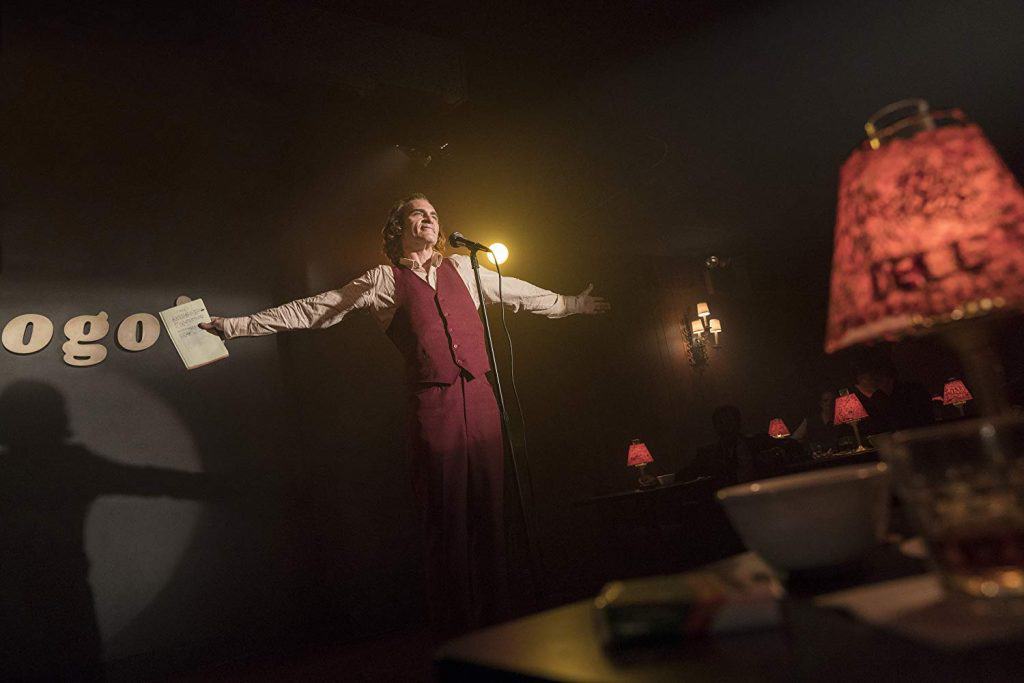
J: Oh yes! Now that you brought up that amazing soundtrack, I totally agree with you. I felt like it was the binding agent that held the movie together. It sounded as though Guðnadóttir took minor inspirations from Hans Zimmer and James Newton Howard’s The Dark Knight score as some parts sounded fairly similar. Major props goes to Guðnadóttir for composing music that actually lets viewers feel the manic emotions Fleck goes through.
LM: Sounds like our feelings for the film are as smudged as Fleck’s makeup after a particularly bad day. Personally, I’m all for cracking the code of Joker — while the mystical origins of a mobster jester is captivating, he also makes for fascinating character study. The trailer of Joker seemed to promise that, which is why I was so hyped.
I must say that no amount of trailer could have prepared me for the transition of Joaquin Phoenix from a joe to the Joker. In the skin of Arthur Fleck, Phoenix spellbindingly fleshed out a character who wears a coat of awkward gentleness over a vest of hopeful delusion tucked in a pair of ill-fitting, gun-carrying pants.
The most captivating part of Phoenix’s performance — and the whole movie, actually — is the build-up to what we all know will happen. For example, when Fleck is in the train with the three drunken yuppies provoking him, and the climax when Fleck/Joker/who-even-knows-anymore sits on stage with hotshot host Murray Franklin. I could see the bloodbath coming, but the ascension of tension was so masterfully applied that I was at the edge of my seat. In fact, the whole movie, as chaotic as its parts are, seems like an exercise of neat buildups.
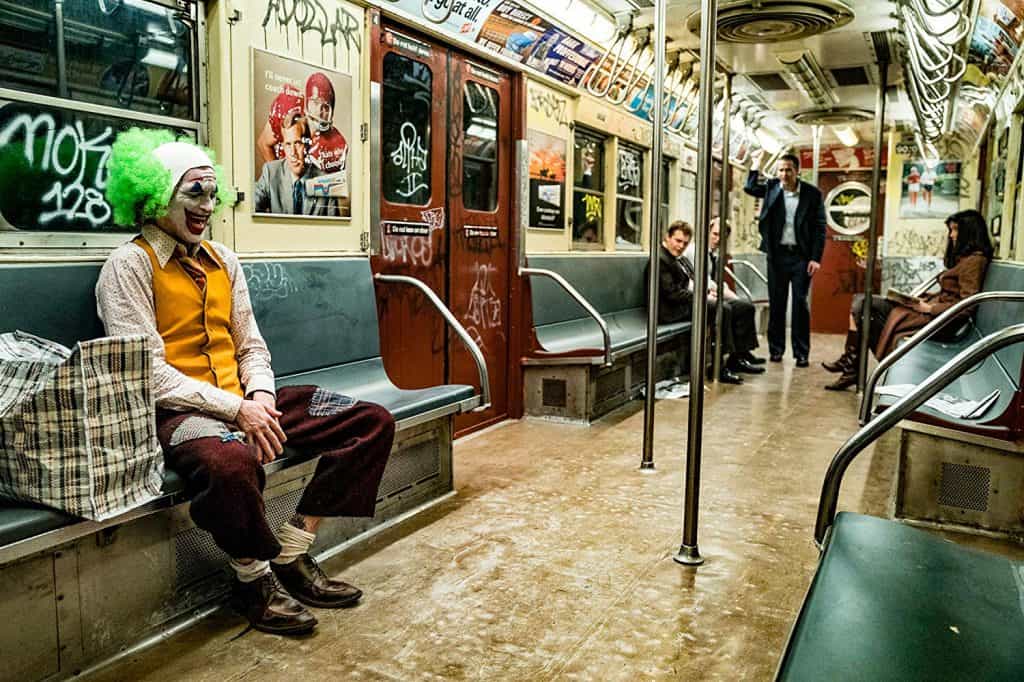
But the neatness also gets my skin crawling a little too. I think both of you nailed it when you said that your issue with the film is that it made the Joker a little too sympathetic and cliched. I agree. It’s not that villains cannot have sad back stories, but it is the tone that Joker takes — director Todd Philips seems so adamant in giving the killer clown a convincing buildup to go, ahem, batshit crazy that he grabbed a deck of victim-cards and flung them at the audience.
From having mental issues to being fired from his job to having money problems to being bullied to being betrayed by his friend and his mum to being ridiculed on TV by his ‘father figure’ to being rejected by his probably-but-maybe-not birth father, Fleck is the downtrodden wronged by Society, and his narrative takes on the shape of an underdog antihero, not a cold-blooded criminal. At best, this is stale storytelling. At worst, the movie ends up validating the Joker’s destructive violence.
Some people have pointed out that the Joker, from Mark Hamill to Jack Nicholson to Heath Ledger, has always been cruel and anarchic, so why point fingers on Phoenix’s Joker for validating violence? To which I’d say that none of the on-screen Jokers, as cathartic as they were to watch, were painted as sympathetic with this much intensity. Joker becomes less like a character study and more like a character public relations.
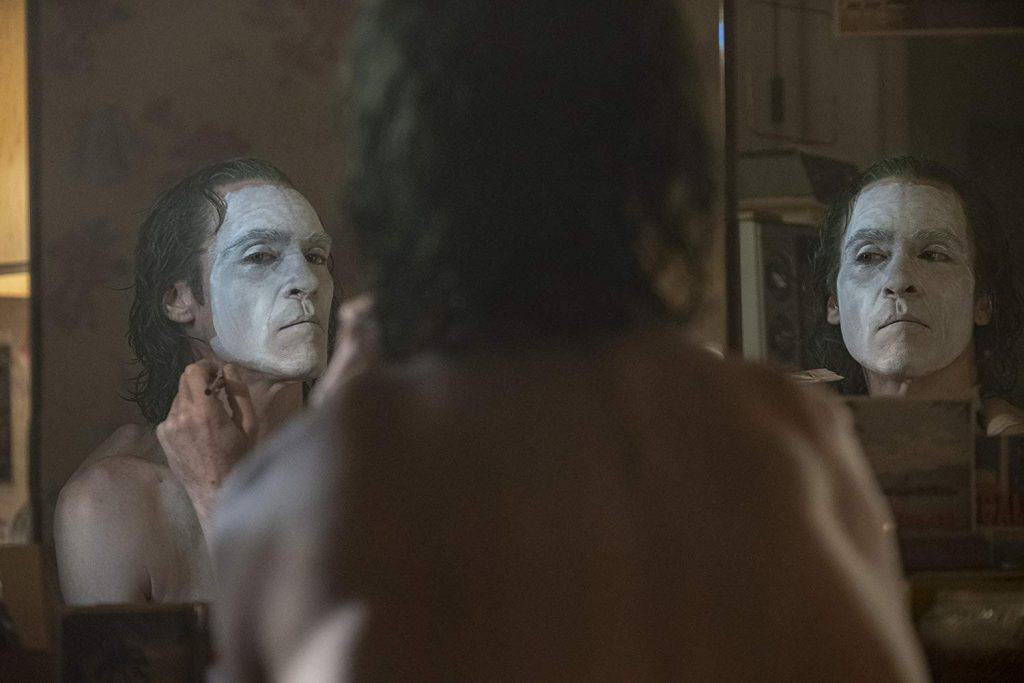
JY: I have certainly watched this movie with the spectre of concern over the movie legitimising violence hovering over me. But it has always been a challenge, right? As a person who likes violent movies (done right, of course), being outright uncomfortable with Joker legitimising violence feels hypocritic.
LM: Same dilemma here. Well, I should note that Philips denied that his movie aims to rationalise violent subcultures. He told IGN, “I don’t think it’s the filmmaker’s responsibility to teach morality. And if you don’t know the difference between right and wrong, then there’s all sorts of things that you are going to interpret in the way that you want.”
JY: I trust that the audience can certainly tell that Arthur Fleck/Joker is not someone you ought to relate to. The problem is that the movie very much wants you to side with Fleck.
With Martin Scorsese’s Taxi Driver, which Joker borrows heavily from, we can see that the main character Travis Bickle (incidentally played by Robert De Niro, who is Fleck’s idol in Joker) has both external and internal reasons to violently lash out. You can sympathise with the external reasons for his loneliness, but the internal reasons — his own unhinged, masculine psyche — makes him more nuanced and harder to root for.
It’s different for Joker, where Fleck’s spiral into madness has mostly to do with how society treats him. The film’s criticism and blame was rarely directly cast on Fleck, besides a vague hint about his narcissism (which we’re not sure if is exacerbated by his untreated mental illness). On one hand, it’s director Todd Phillips’ prerogative to make Fleck like that. On the other hand, this un-nuanced take on the Joker character feels disappointing.
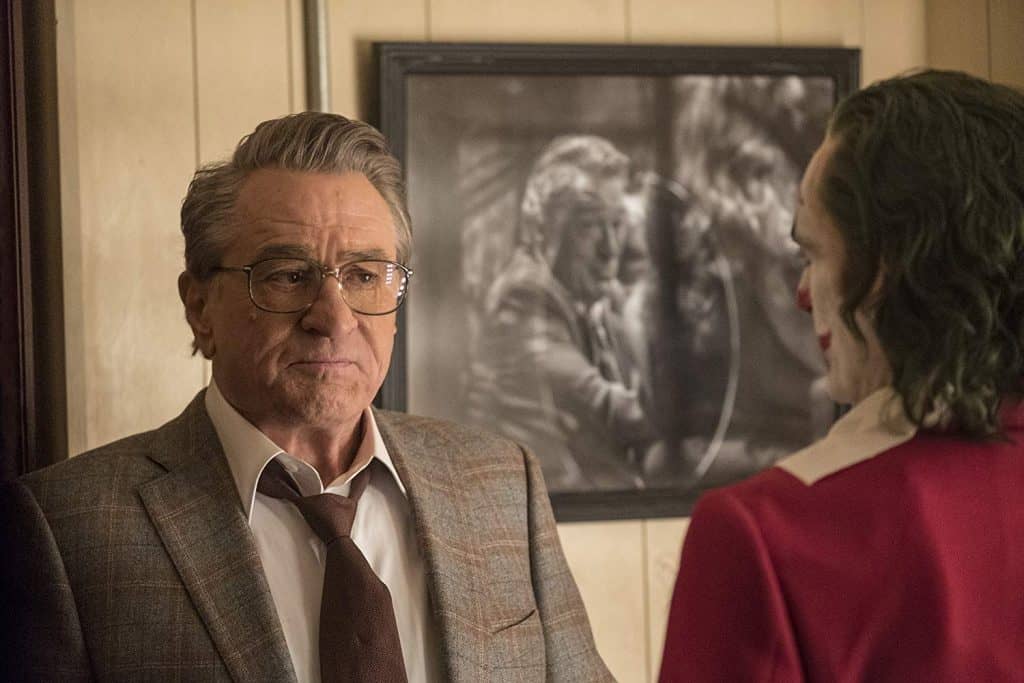
J: There were parts of the movie that definitely made me feel uncomfortable but it had more to do with just how relatable and real it could be. I’m not going to say that the movie promotes violence or gives viewers the thumbs up for inciting violence. Unlike previous Jokers inflicting terror for fame, money or just for no reason other than to toy with Batman, Fleck didn’t seek to cause chaos. Instead, he accidentally sparked a violent protest by killing the three schmucks on the train.
Bullied, undermined and overlooked all his life, it’s understandable that Fleck relishes being made an overnight sensation because, for the first time, he was noticed and even revered by others.
So again, while this wasn’t exactly the Joker movie I was hoping for due to how sympathetic Fleck is as a character, I do hope it serves as a reminder that everyone goes through bad situations in life and even though they do it with a smile, you never know what goes on inside their minds.
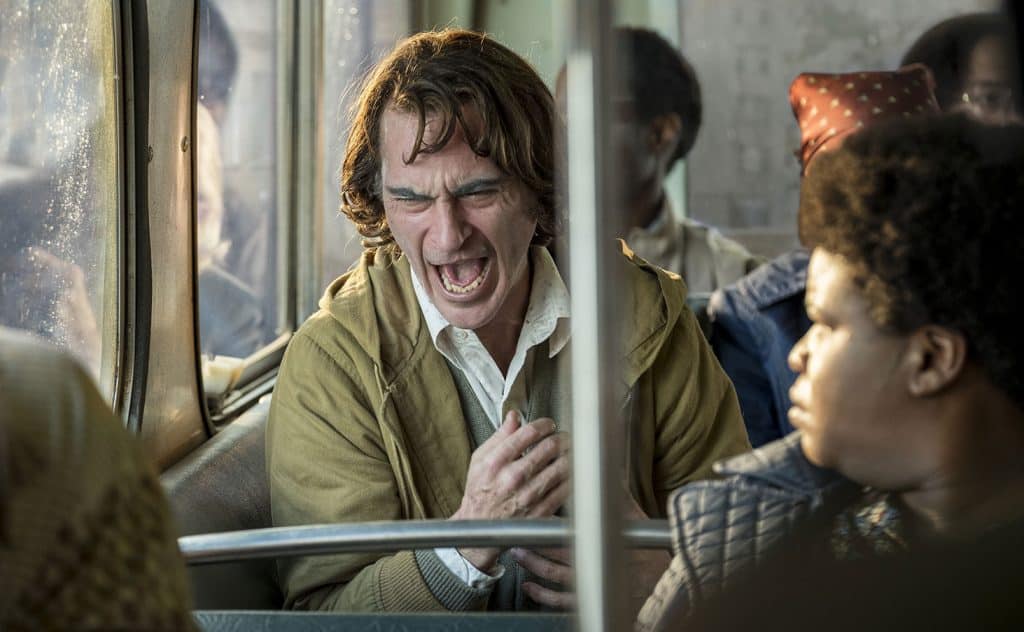
LM: You have a point, of course, in saying that the film depicts something relatable and real. Some people are saying that Todd Philips’ Joker does not take sides; that it’s not promoting violence but just showing us what would happen when we ignore the Arthur Flecks of the real world.
But Joker does seem to take sides, from my view. Like JY pointed out, the movie goes out of its way to show how the society is largely at fault for making Fleck the Joker. One example is the last ‘joke’ Fleck told on the talk show with Murray Franklin, “What do you get when you cross a mentally ill loner with a society that abandons him and treats him like trash? I’ll tell you what you get! You get what you fuckin’ deserve!” Then he shoots Franklin in the head. Is Fleck the one saying that people who ‘stepped’ on him deserve to get shot, or is the movie saying that?
In another time, perhaps this is not a huge problem. But in our current age of rage, terrorism and intolerance committed in the name of ‘being wronged’ (think race supremacists and nationalists whose voices have intensified not just in the US, but in many parts of Asia too), one wonders if Todd Philips have bats in his belfry to cast the Joker in such a see-what-you-made-me-do light.
I do wonder if I’m being unfair to the movie, that my judgement on Joker is clouded by the current context — the horror in reality committed by violent supremacists. On some levels, I want to like the movie. I was wowed by Joaquin Phoenix’s performance of the Joker. He embodies the manic, volatile glee of the killer clown that is both terrifying and mesmerising to watch. I also like the idea of using a comic book character to explore real-world issues, like mental illnesses and the disparity between the photogenic elites and the invisible poor.
But Phoenix’s Joker is also the most glamorous I’ve seen. The way he saunters out of the train station with a cigarette in hand, after causing murder and mayhem, just reminds me of a fashion ad. I guess it is this glamorised lens that I find unsettling — previous big-screen Jokers, even Heath Ledger’s, may be cathartic to watch, but they were not given such thick veneer of ‘cool’ that made who was essentially a serial killer seemed almost admirable.
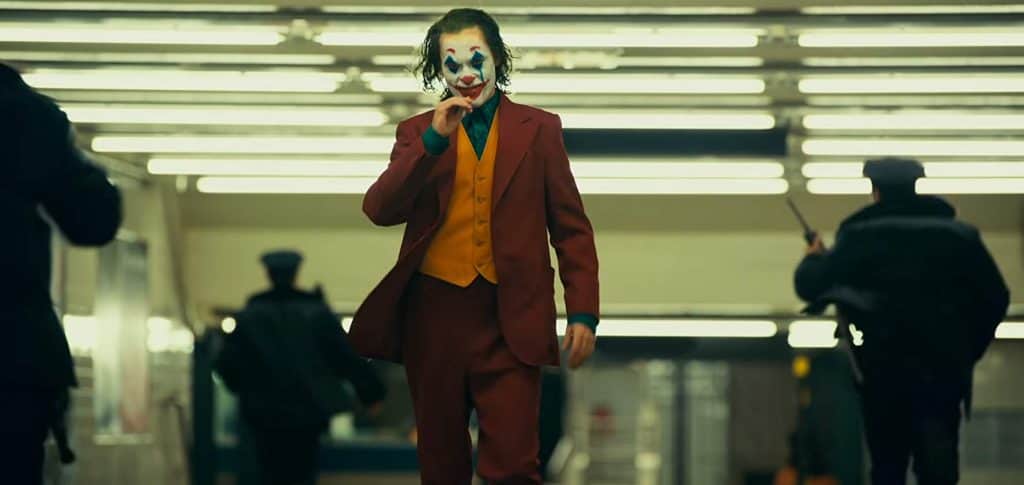
What about you guys? Did you like Joaquin Phoenix’s performance of the Joker?
J: Phoenix’s portrayal of the Clown Prince of Crime, who admittedly doesn’t do a lot of crime in this movie, is quite brilliant actually. Phoenix made Fleck and Joker seem like two distinct characters. While Fleck struggled for air after prolonged cackling, the Joker didn’t cackle at all, showing control over his emotions. I think I find that transformation quite impressive as Fleck starts off as shy and awkward, but when he becomes the Joker, he’s calm, cool and confident.
Personally, I just wished that there would have been a little more deviousness to the Joker’s part instead of just what happens towards the ending. If you think about it, a lot of the “bad things” that Fleck does is all purely accidental, incidental, for self-preservation or just to release pent-up frustrations. Fleck isn’t inherently an evil person, he just starts being comfortable with it towards the end, which is great because he doesn’t come off as being your average one-dimensional villain.
But for fans of the Joker in the comics, this might just be a little jarring as the villain has always been deemed as the most despicable of all Batman’s rogues. After all, the Joker went so far as to torment the hero by tormenting the people he cares most about, such as Barbara and James Gordon (Killing Joke), Jason Todd (A Death in the Family) and the entire Bat family (Batman: Death of the Family) for that matter.
JY: This is a tussle for me — a fight between what I consider a great performance of Joker, but a version of the Joker that I find to be middling. Essentially, I like Joaquin Phoenix’s performance. I like that he’s able to transition between the lonely, defeated Arthur Fleck into the confident, swaggery Joker who can saunter out of a train station cooly after a good amount of devious-do. It’s in how he can make a dance look not goofy but liberating. It’s kind of amazing.
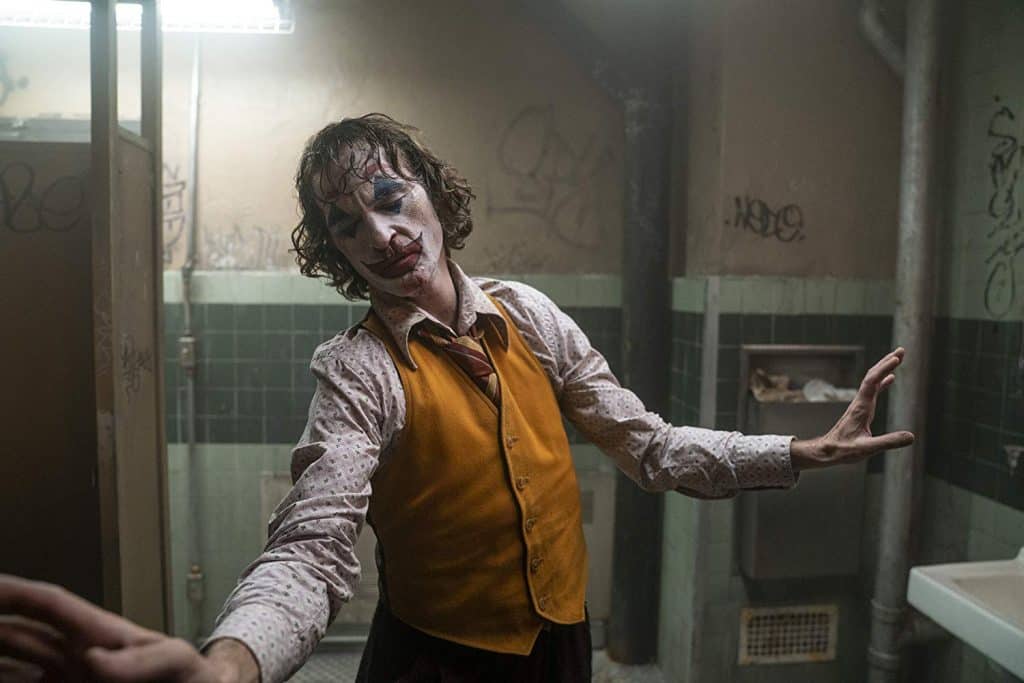
But this version of the Joker is ultimately impaired by having a movie that doesn’t say much, and thus doesn’t produce a Joker I find compelling. The Joker has changed tremendously along with the times — with Cesar Romero in Adam West’s Batman in the 60s, he’s the simple, campily delicious Joker. With Tim Burton, he’s the gothic, charismatic monster. With Nolan, he’s the personification of an ideology — a true antagonist to Batman both physically and philosophically. And Leto’s version… not there enough to warrant any thought.
So what’s Joaquin Phoenix’s Joker? He is a cautionary tale. But a Joker that’s basically the product of an apathetic society and class gap feels a tad boring to me — more like an amalgamated imitation of Travis Bickle of Taxi Driver and Patrick Bateman from American Psycho, and not enough of his own thing. The result is a Joker that doesn’t stand out from other deranged killers in movies — and that feels like a disservice to such an iconic comic book character.
LM: Phew, it’s pretty meta that a movie about the Joker, once described by the Heath Ledger version as an “agent of chaos”, is tearing us apart. We at DeconRecon are always advocating for people to think deeply about pop culture, and with Joker, I think we got more than we bargained for! Thanks for joining me to chew over this film, guys. Till our next group brain-churn!
Also published on Medium.

When more heads are better than one.
